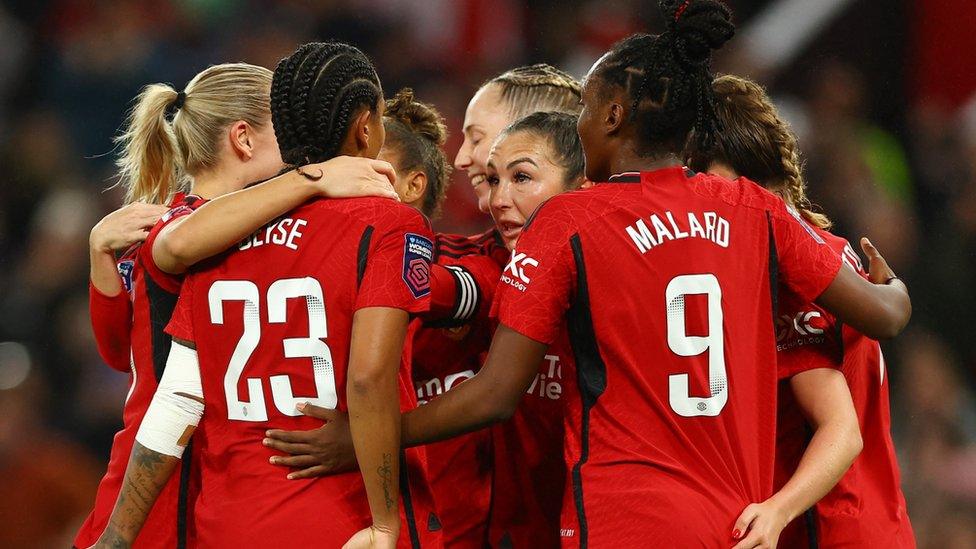Female footballers abused by fans on clubs' TikTok, study finds
- Published

The study looked at fan comments on the TikTok accounts of major football clubs
Female footballers have been the target of unchecked sexist and misogynistic abuse by fans on their club's social media accounts, research has found.
A study found "toxic fan behaviour" within the comments on official social media accounts of major clubs.
Replies to posts involving the women's teams included sexist, lurid and misogynistic comments.
Dr Emma Kavanagh, of Bournemouth University, described the findings as "particularly concerning".
The study, by University of Stirling, Chester Business School, Bournemouth University, Durham Business School and the University of Manchester, looked at the TikTok accounts of Manchester United and Burnley FC between 2 September 2021 and 16 March 2022.
Over the seven months, four academic researchers studied responses to 417 videos about the women's teams posted on the clubs' accounts.
Collectively the videos had more than 70 million views and 59,000 comments.
According to the findings, the offensive comments followed four themes:
Sexism: Belittling players' skills and mocking fact that women play football professionally
Misogyny: Aggressive comments showing hatred and animosity towards the women
Sexualisation of women: lurid comments about their appearance, reducing them to objects of sexual desire
A demand for a male-only space: A belief the club should only share posts about male players
Dr Wasim Ahmed, who co-authored the study at University of Stirling, said: "Worryingly, some of the toxic comments we looked at were being 'liked' by other users and attracting further disparaging replies, and appeared to be left unchecked by the clubs at the time.
"It was clear that the accounts were not being monitored on a regular basis for misogynistic comments or sexualised language.
"The danger is, then, that such exchanges become part of a tone that is acceptable to clubs and their followers."
Dr Kavanagh, associate professor in sport psychology and safe sport at Bournemouth University, said: "This study shows how urgent it is for football clubs to address longstanding issues of toxic fan behaviours.
"Hopefully it will serve as a wake-up call to clubs and social media platforms to act, for the wellbeing of their players and to bring a more respectful and inclusive online culture for their fans."
Both Manchester United and Burnley FC have been asked to comment.

Follow BBC South on Facebook, external, X, external, or Instagram, external. Send your story ideas to south.newsonline@bbc.co.uk, external.